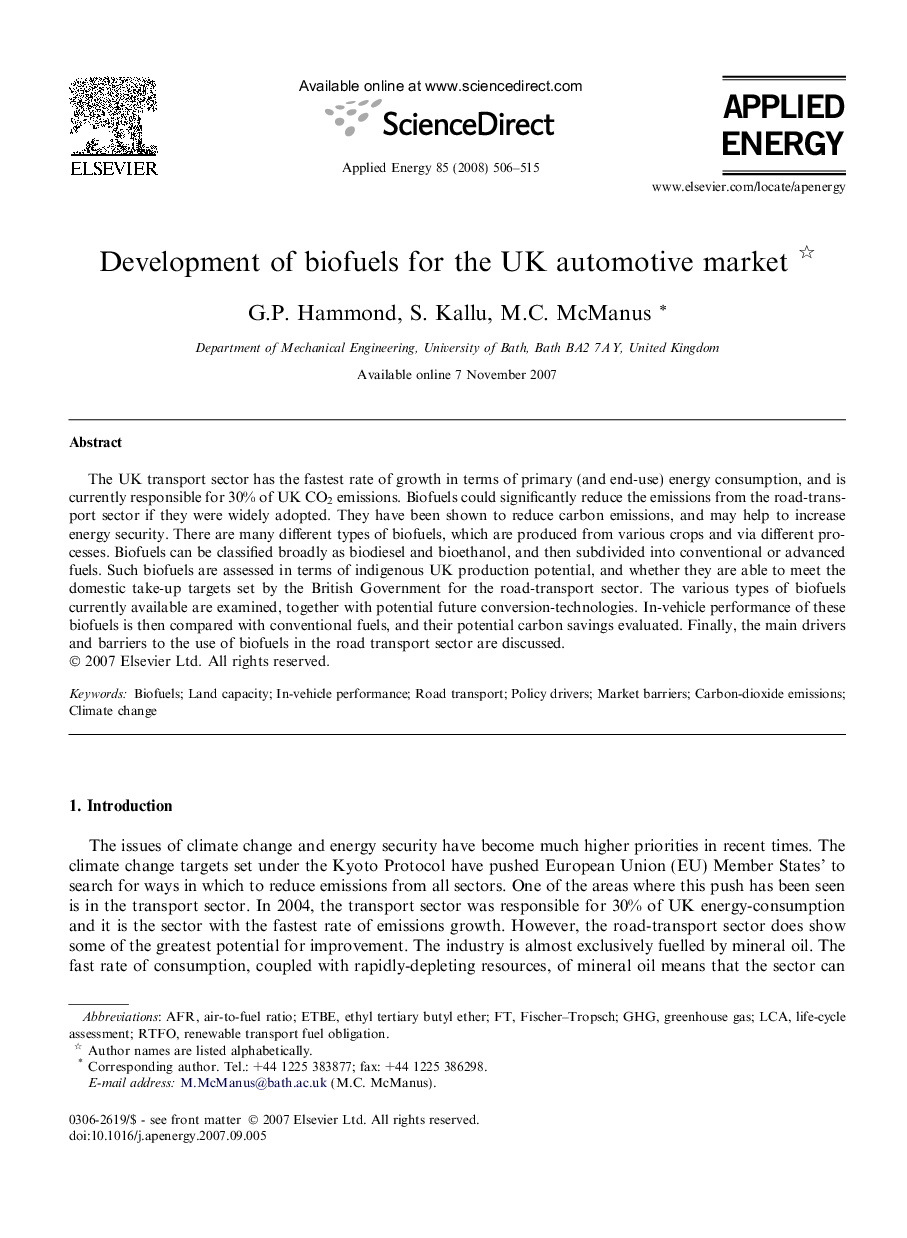| Article ID | Journal | Published Year | Pages | File Type |
|---|---|---|---|---|
| 245112 | Applied Energy | 2008 | 10 Pages |
The UK transport sector has the fastest rate of growth in terms of primary (and end-use) energy consumption, and is currently responsible for 30% of UK CO2 emissions. Biofuels could significantly reduce the emissions from the road-transport sector if they were widely adopted. They have been shown to reduce carbon emissions, and may help to increase energy security. There are many different types of biofuels, which are produced from various crops and via different processes. Biofuels can be classified broadly as biodiesel and bioethanol, and then subdivided into conventional or advanced fuels. Such biofuels are assessed in terms of indigenous UK production potential, and whether they are able to meet the domestic take-up targets set by the British Government for the road-transport sector. The various types of biofuels currently available are examined, together with potential future conversion-technologies. In-vehicle performance of these biofuels is then compared with conventional fuels, and their potential carbon savings evaluated. Finally, the main drivers and barriers to the use of biofuels in the road transport sector are discussed.
